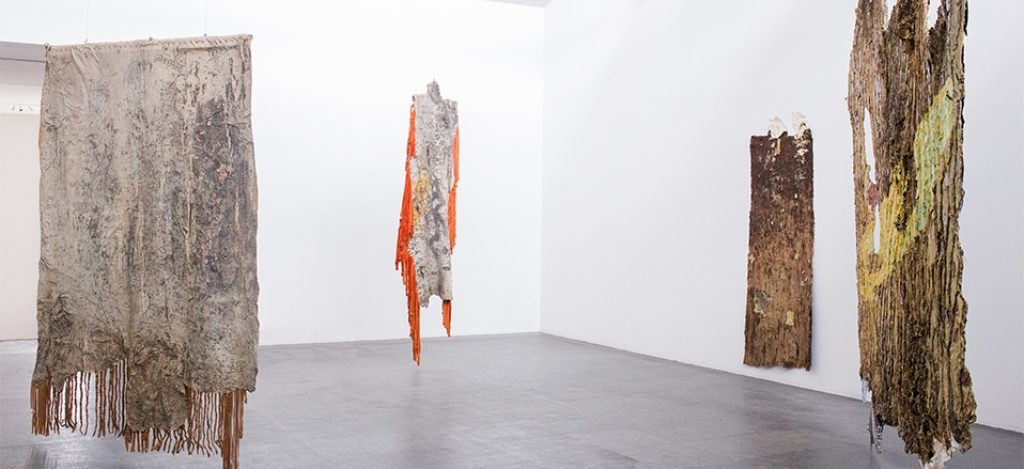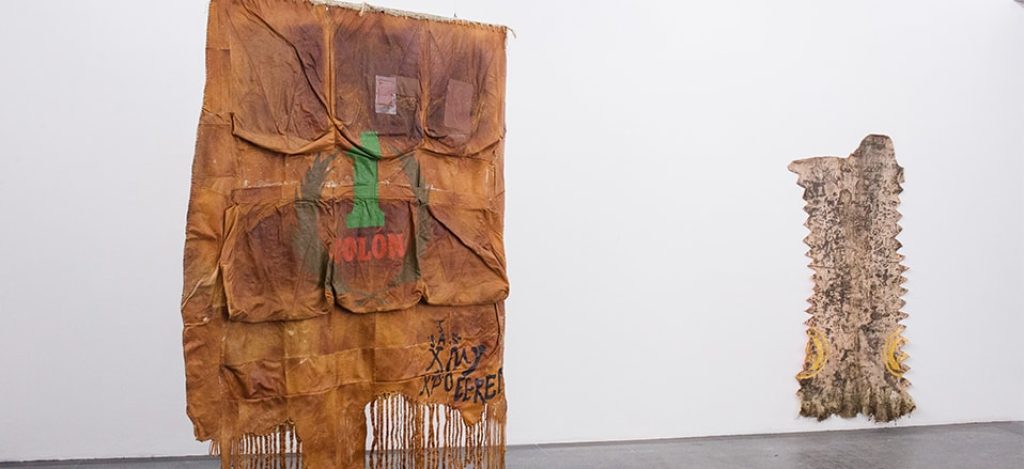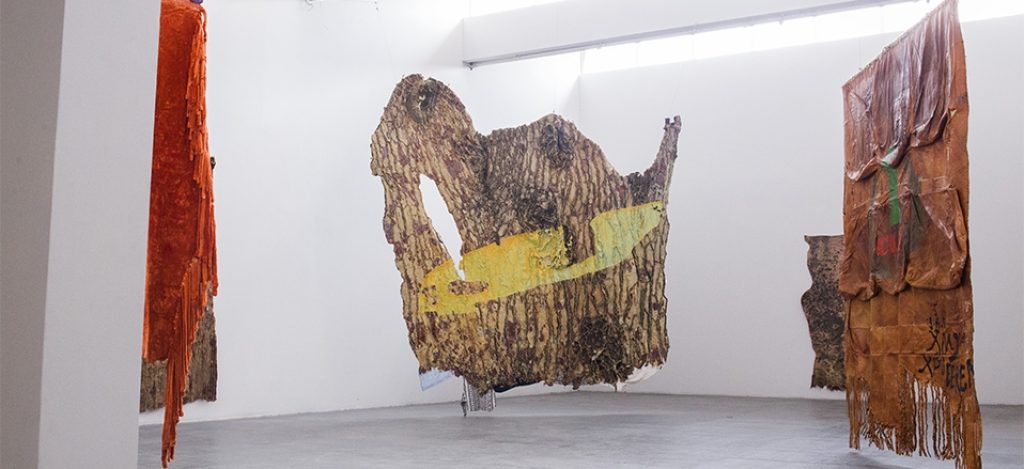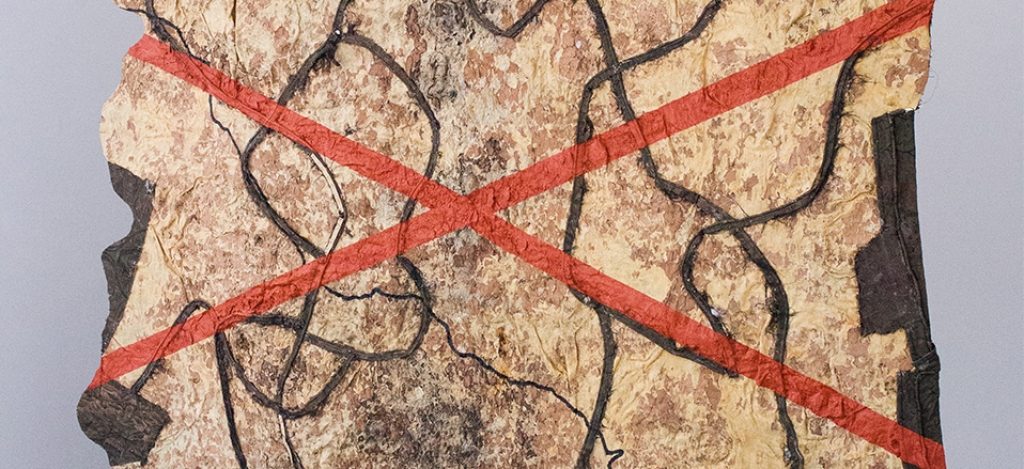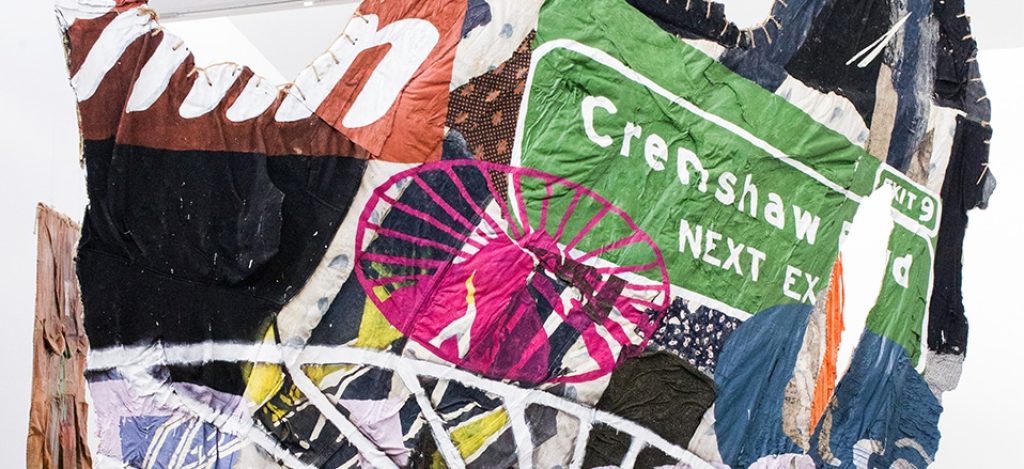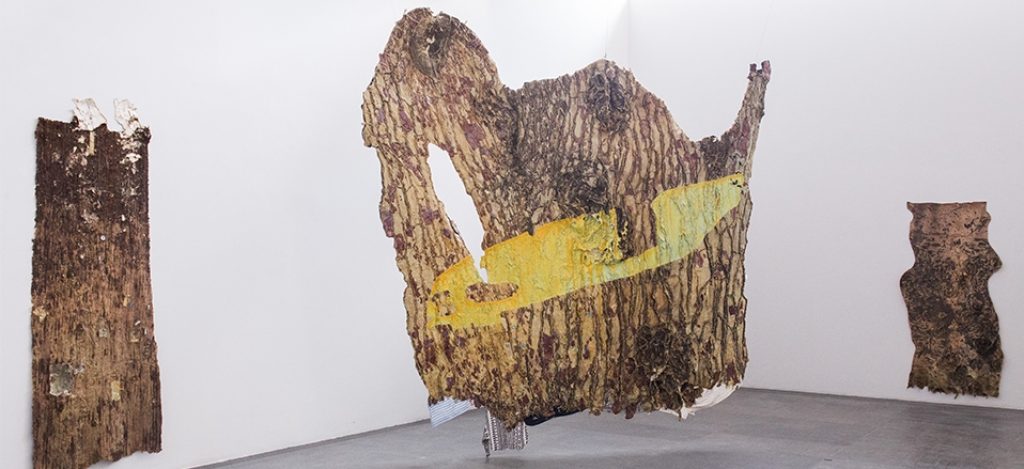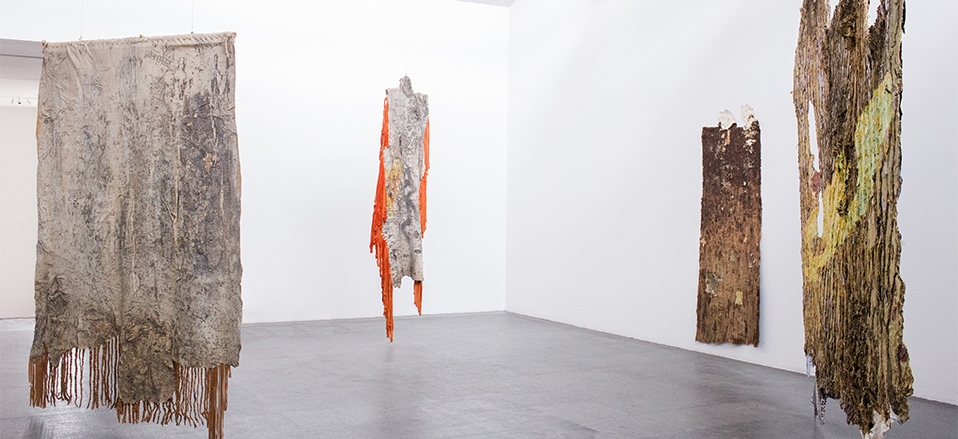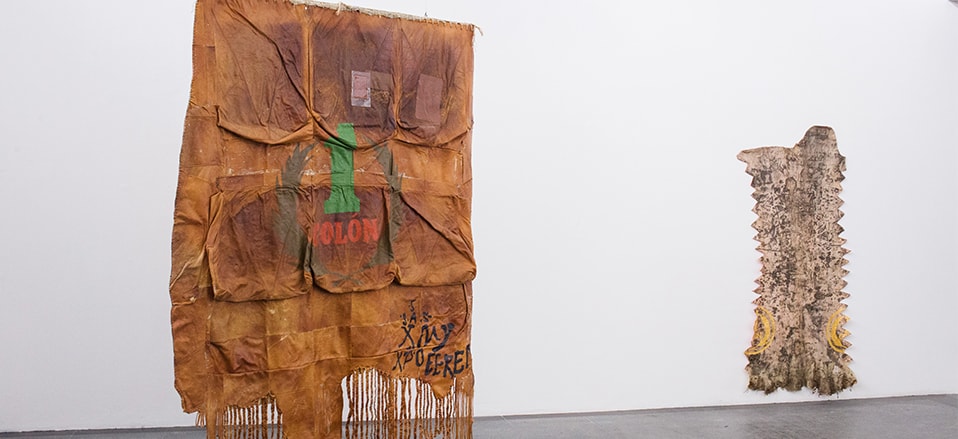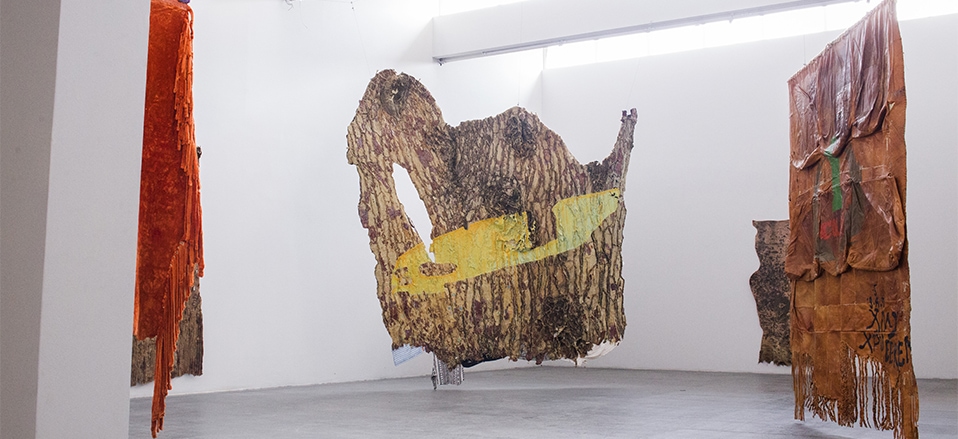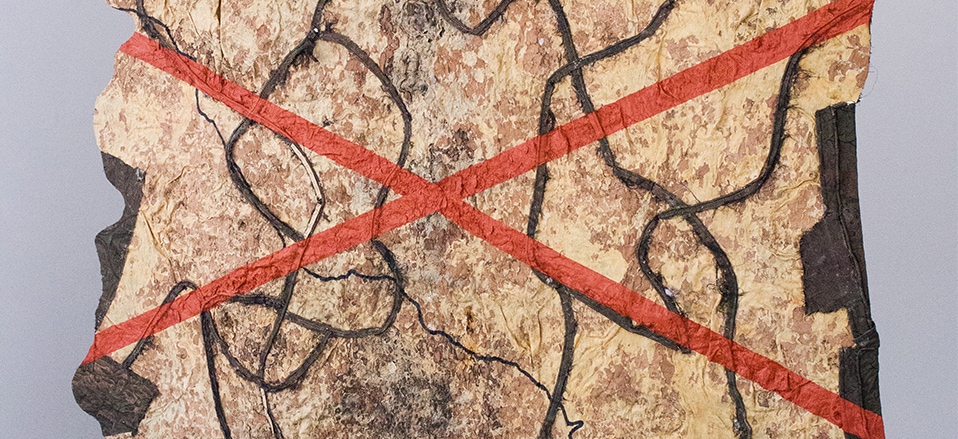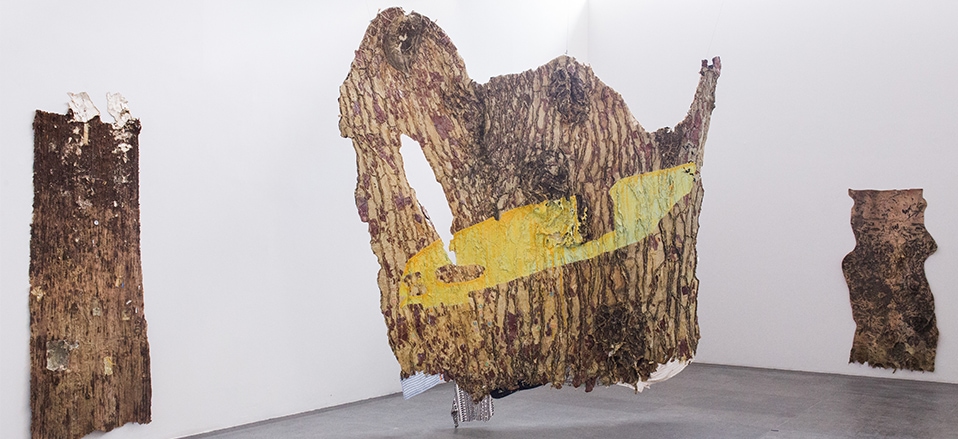MY COUNTRY YOU DO NOT EXIST
Eddie Aparicio
June 14, 2019 | August 16, 2019
Eddie Aparicio: País mío no existes / My country you do not exist
June 14, 2019 | August 16, 2019
Opening: Friday, June 14, 2019, 8:00 pm
Páramo is pleased to present País mío no existes / My country you do not exist by Eddie R. Aparicio—the artists first show at the gallery.
The title of the exhibition comes from a poem by the foremost Salvadoran poet Roque Dalton called El Gran Despecho from 1969. Dalton was exiled for his political activism, and the poem asserts the fallacy of nationalism and that without the people that create a country it ceases to exist. This idea serves as an essential conceptual framework in these works by extending the concept of exile to a broader history of forced displacement in El Salvador.
Aparicio was initially drawn to rubber for its resonance with his family’s Salvadoran origin. Rubber trees and a rubber industry once thrived in El Salvador, a product of indigenous knowledge, disrupted by political violence. A previous project took the artist to El Salvador and then neighboring Guatemala in search of his raw materials. These works sit within a transnational worldview by focusing on material histories, multiplicity of site across boundaries, and collaboration with other species that hold their own types of memory.
These pieces employ a unique process that incorporates elements of painting, sculpture, printmaking, and installation. The process of creating the prints (or documents as the artist calls them) makes a mirror image of the trees capturing the growth marks, human scarring, graffiti, and environmental residue. Aparicio noticed that the history of these species of trees had a strong metaphorical connection to the same Latinx communities in those Los Angeles neighborhoods.
Characteristic of Aparicio’s practice, the pieces in this exhibition take the rubber print as a base and combine other found materials and images to create a series of works that are all singular in process. The unique formal and material decisions in each piece create an indexing of each particular site. Found couches, clothing, and blankets serve as a structural backing to the rubber prints and also add layers of materials that each has its own history of use and connection to place. What was previously linen, or canvas has been replaced in this body of work with these alternate backings as a statement in favor of totally material non-neutrality. Aparicio asserts that the clearest way to follow the traces and branches of colonialism and historical oppression is first to claim total material non-neutrality. There is no neutral position within an ecological understanding of the world where environmental justice is inextricably linked to social justice and all materials in art making (especially our bodies) are part of that conversation.
About the artist
Eddie Aparicio was born in Los Angeles in 1990. He received an MFA in Painting and Printmaking from Yale University in 2016, a BA in Studio Arts from Bard College in 2012 and has also attended the Skowhegan School of Painting and Sculpture and the Southern California Institute of Architecture. His recent works address the intersection of social and environmental justice through specific use of material, sound, and multiplicity of site. He uses materials that have a strong tie to pre-hispanic cultures in Central America to document Central American communities in Los Angeles. He has exhibited at The Mistake Room, Steve Turner Gallery, Zona Maco, and Anonymous gallery among others. He has received awards from the National Endowment for the Arts, the California Community Foundation, and was recently a finalist for the Artadia LA award.
For further information, please contact: media@paramogaleria.com / +52 33 3825 0921.
Press enquiries: media@paramogaleria.com / +52 33 3825 0921.
Páramo would like to extend its gratitude to Tequila 1800 Cristalino, Club de Costa and Cerveza Minerva for their collaborative support.
TAGS: #EddieAparicio #Paismionoexistes #Mycountryyoudonotexist #Paramo
